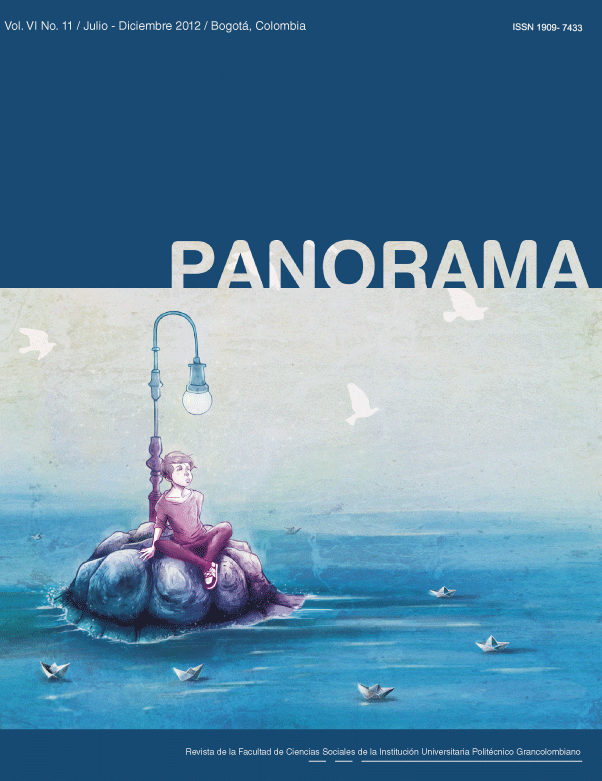Abstract
Science education for the young school population is a key factor for a country to have a critical mass of science literate citizens that facilitates and promotes technological, social and economical development under a sustainable approach. Inquiry-Based Science Education (IBSE) methodology is positioning internationally as an effective pedagogical tool to promote the development of scientific, technological and citizen competences in youngsters. This article intends to present the details related to implementation of IBSE methodology in a particular framework: Little Scientist Program (LSP) in the central region of Tolima, following the guidelines and management of the University of Ibague. Using the survey and interview techniques to collect information, the results derived from descriptive and comparative media analysis reveal that the institutional profile, the class shift, and the teacher’s profile seem to be specific conditions which favor the LSP implementation. This finding contributes to the action strategy of the managing institutions ofLSP in Colombia.
References
Acevedo, J. (2004). Reflexiones sobre las finalidades de las enseñanzas de las ciencias. Revista Eureka, 1, 3-16.
Barros, J. (2008). Enseñanza de las ciencias desde una mirada de la didáctica de la escuela francesa. Revista Escuela de Ingeniería de Antioquía (EIA), 10, 55-71.
Buch, N., & Wolff, T. (2000). Classromm teching trough inquiry. Journal of professional issues in engineering education and practice, 105 - 109.
Campanario, J., & Moya, A. (1999). ¿Cómo enseñar ciencias? Principales tendencias y propuestas. Enseñanza de las ciencias, 17(2), 179-192.
Delors, J. (1996). La educación encierra un tesoro. Informe a la UNESCO de la comisión Internacional sobre la educación para el siglo XXI presidida por Delors. Madrid: Unesco.
Deober, G. (2006). Historical perspectives on inquiry teaching schools. En L. Flick , & N. Lederman, Scientific inquiry and nature of science Netherlands. Springer.
Duque, M. (2008). Programa Pequeños Científicos: presentación y alternativas de vinculación. Bogotá: Universidad de los Andes.
Furman, M. (2008). Ciencias naturales en la escuela primaria: colocando piedras fundamentales del pensamiento científico. IV Foro Lationamericano de Educación, Aprender y Enseñar Ciencias: desafíos, estrategias y oportunidades.
González, A. (2009). ABC en la Educación Científica. Manos en la Masa. Taller Latinoamericano Evaluar proyectos ECBI. Universidad de los Andes. Bogotá. . Brasil: Instituto Oswaldo Cruz - FIOCRUZ.
Grynszpan, D. (2009). La ciencia en tu escuela. Taller latinoamericano Evaluar proyectos ECBI. Bogotá: Universidad de los Andes.
Harlen, W., & Allende, J. (2007). Informe del Grupo de Trabajo sobre Colaboración Internacional en la Evaluación de "Educacion en Ciencias Basada en la Indagación". Chile: Universidad de Chile.
López, P. (2009). Educación en Ciencias Basadas en Indagación (ECBI) - Academia Chilena de Ciencias. Taller Latinoamericano: Evaluar Proyectos ECBI. Bogotá: Universidad de los Andes.
Meisel, J. (2007). Factores Críticos Institucionales que tienen relación con el ambiente de aprendizaje y las competencias ciudadanas de los estudiantes. Bogotá: Universidad de los Andes.
NRC. (2000). Inquiry and the national science education standards: a guide for teaching and learning. Washington.
NSRC. (1997). Science for all children. Washington.
Olier, C., Duque, M., & Tiberio, J. (2007). An Assessment Information System for a K-12 Hands-On Program: the Pequeños Científicos Case. International Conference on Engineering Education - ICEE.
Prince, M., & Felder, R. (2006). Inductive teaching and learning methods definitions comparisons and research bases. Journal Engineer Education, 95(2), 123-138.
UNESCO. (2001). Science, technology and mathematics education for human development. Goa, India: Unesco.
Authors who publish with this journal agree to the following terms:
- Authors retain copyright and grant the journal right of first publication with the work simultaneously licensed under a Creative Commons Attribution License that allows others to share the work with an acknowledgement of the work's authorship and initial publication in this journal.
- Authors are able to enter into separate, additional contractual arrangements for the non-exclusive distribution of the journal's published version of the work (e.g., post it to an institutional repository or publish it in a book), with an acknowledgement of its initial publication in this journal.
- Authors are permitted and encouraged to post their work online (e.g., in institutional repositories or on their website) prior to and during the submission process, as it can lead to productive exchanges, as well as earlier and greater citation of published work (See The Effect of Open Access).
Panorama by Institución Universitaria Politécnico Grancolombiano is licensed under a Creative Commons Reconocimiento-NoComercial-SinObraDerivada 4.0 Unported License.






